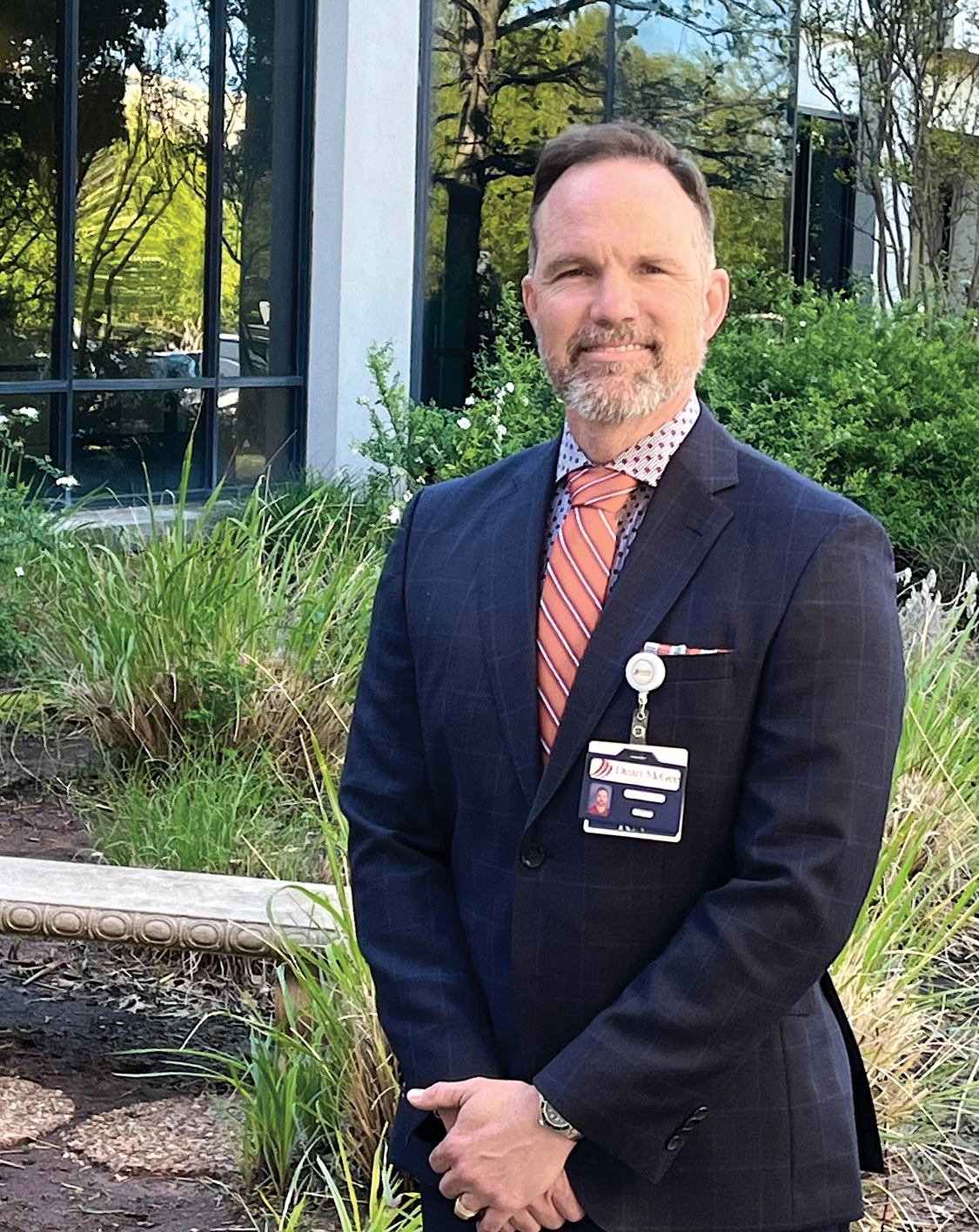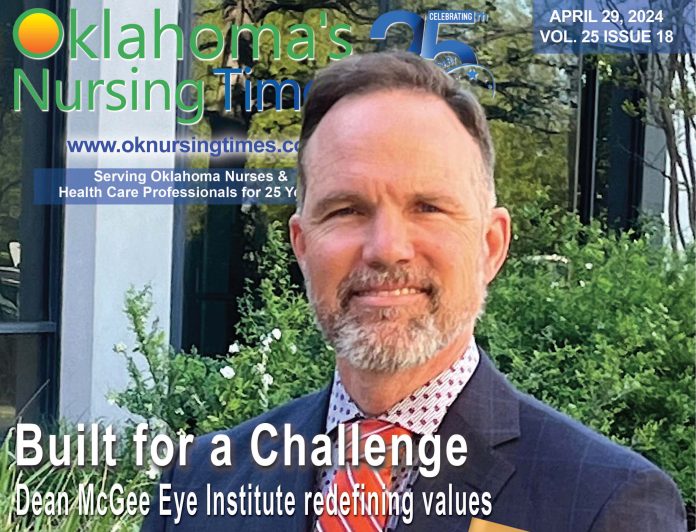James Elledge, RN director of Surgical Services
US Army Major, deployed as Deputy Command Surgeon/Med-Ops OIC/HCA Prog Mgr – JTF-B, Soto Cano Airbase, Comayagua, Honduras.

story and photo by James Coburn, Staff Writer
An environment inspiring the exchange of ideas is essential to patient care, said James Elledge, RN, director of Surgical Services at Dean McGee Eye Institute, located in Oklahoma City.
“That is where I find satisfaction from a work perspective,” Elledge said.
But being administrator at the Dean McGee Eye Surgery Center constitutes most of his role.
Elledge is also a US Army Major, who was deployed as Deputy Command Surgeon/Med-Ops OIC/HCA Prog Mgr – JTF-B, Soto Cano Airbase, Comayagua, Honduras.
He began his nursing education by graduating with a degree from Oklahoma City Community College. In 2008 he earned his Bachelor of Science in Nursing degree at the Kramer School of Nursing at Oklahoma City University. He is also working toward completing a Master of Science in Nursing degree and a Master of Business Administration at OCU.
His wife had a hemorrhagic stroke in the first week of his last semester. Her stroke took him out of school when his focus centered upon the reframing of his family.
“I essentially told myself I would not reengage school until my daughters were out of high school,” Elledge said. “This year my youngest will graduate. So, I will essentially be returning to school to finish off those two degrees.”
Following his associate degree program, his nursing career began in the ICU and ER environment of INTEGRIS Southwest Medical Center in Oklahoma City. Two years later, he gradually moved outside acute care while moonlighting in ambulatory care.
In 2013 he was recruited by the Dean McGee Eye Institute for the OR director job.
“I was coming off of Army mobilization to Germany, came home and worked in a surgery center in Norman as a circulator,” Elledge continued.
His move to Dean McGee Eye Institute came soon after the stroke of his wife.
“I became hesitant about whether I should leave in this direction, but thought it would be a good move,” he explained.
His interview for Oklahoma’s Nursing Times came months after a 2023 US Army deployment to Honduras and several different countries. He returned to Dean McGee Eye Institute in December.
He returned amid major changes throughout the institute. Organizational changes began with Epic last summer. Epic Systems is one of the largest providers of health information technology, used primarily by large US hospitals and health systems to access, organize, store, and share electronic medical records. The transition comes with benefits but has been a challenge, Elledge said. The renovation of the culture will be positive for the organization downstream.
“To me with my skill sets and what I enjoy doing in this kind of moment within an organization, is not totally redefining itself, but certainly refining itself. It is of significant interest to me,” Elledge said. “I enjoy creating an environment where people understand why they’re coming to work. This stems from the greater organization mission, vision values. And, as we are dealing with cultural change, part of that is the redefinition of our values. That is actually still ongoing. And so, with that, it brings purpose, direction, and guidance to where we want to be and who we want to be as a fixture within this community.”
According to Dean McGee Eye Institute, “A small group of prominent Oklahoma City citizens, led by ophthalmologist Richard A. Clay, MD, founded the Oklahoma Eye Foundation in 1965 with the specific goal of establishing an eye institute.”
Elledge said, “I think it is quite poignant that on the threshold of that mile marker, we have been reevaluating ourselves — who we are and what we would like to become in time for that anniversary.”
Making positive organizational changes is what Elledge is all about as Dean McGee Eye Institute provides the best care and scope possible within the state and region.
“I’m here for that,” he said.
Part of the shared governance of the nursing staff is to provide better connectivity to improve patient care opportunities, he said.
“It’s not just looking to me as the administrator to get things to happen,” Elledge said. There is also buy-in by surgeons and physicians to continue quality of care through patient safety.
McGee Eye Institute is a cohesive organization with nurses, physicians, and administration, acting in a conjoined effort rather than in silo efforts, he explained.
The complexities of what a nursing career has gifted Elledge’s life with enhanced critical thinking skills and independent thinking. At times he misses direct patient care.
Elledge is built for a challenge.
For more information about Dean McGee Eye Institute: https://dmei.org/about-employment-opportunities/.













